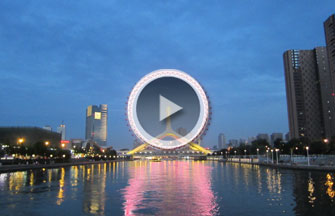Nation witnesses launch of luxury rental businesses
Updated: 2013-10-22 07:24
By Xu Junqian in Shanghai (China Daily)
|
||||||||
Madame Mathilde Loisel, from Guy De Maupassant's short story The Necklace, has been making men and women vigilant for ages about the perils of coveting luxury items, which in her case cost 10 years of her life to pay for one night of radiance, all because of a borrowed diamond necklace that she lost.
Businesspeople in China, however, are taking advantage of similar cravings and trying to turn them into a business by offering the modern equivalents of Madame Loisel access to the luxury items that they think they deserve but can't afford.
Two domestic e-commerce websites - one a startup and the other a veteran player - have launched luxury rental businesses in early July, making aspirational luxury items attainable, at a fraction of their hefty prices, for a week or two.
"There's a burning desire and fascination with luxury items from Chinese white-collar workers. Secoo is ready to help every client savor the fine life," said Li Rixue, founder and chief executive officer of the Chinese luxury business-to-customer site Secoo.com, on his Sina Weibo account about the company's luxury rental service.
The Beijing-based website, founded in 2008 as an online consignment shop for luxury items, was the first in the country to offer similar services. The services were offered for three months until October to celebrate the website's five-year anniversary.
After paying 5,000 yuan ($819) or 10,000 yuan as a deposit, members of the website were able to rent for a maximum of a month one of the 120 bags available on the website, which were categorized into two groups - items costing less than 5,000 yuan and those priced at around 10,000 yuan.
Most of the rental bags were secondhand products. The most expensive item was a Louis Vuitton purple leather tote, which was priced at 11,800 yuan and was in great demand.
"More than 50 of our bags were rented within the first day (of the service being launched)," said He Tingting, a marketing manager of the website, which claims to have 600,000 registered members.
As the website only charged a 0.83 percent fee for what they call "the cost of depreciation" of the products, the following craze to be able to rent the luxury bags almost free didn't come as a surprise for many luxury industry insiders.
"This was more of an eye-catching promotion to boost the website's viewers and perhaps membership than serious business," said Zhou Ting, director of the Fortune Character Research Center and a close watcher of the domestic luxury market.
But He from the website said that they are definitely planning to turn it into a long-term business. The promotion was something "like the opportunity to sample food in a supermarket, to give customers the chance to have a taste first".
The website, which got its name from the ancient Chinese term for pawnshop, siku, saw three-digit growth for its consignment business during the first half of this year, according to its founder, Li. And its business scope has been expanded to jewelry, watches, cosmetics and luxury cars. The company owns three brick-and-mortar stores in Beijing, Shanghai and Chengdu.
"You have to establish your credibility and the quality of your products and then set a price (for the luxury rental service) because it's a new idea," Li said.
Meanwhile, inside another office building in Beijing, four 20-something entrepreneurs have already fixed the prices for their luxury rental business.
With an investment of 1 million yuan, mainly for the purchase of secondhand bags, Zhang Cheng, a 28-year-old former management consultant, and three equally ambitious young people, founded Meikka.com in July with the ambition of building a reference for the luxury market.
The company offers about 50 bags, including brands such as Chanel, Prada and Dior in store. Most of the items are secondhand products and owned by the website. The rental fee averages about 100 to 200 yuan a day, and the longer a client rents a bag, the cheaper it gets.
"We're targeting a younger clientele," said Zhang, differentiating his website from Secoo.
Zhang described his customers as college students or freshly graduated office workers aged from 20 to 25.
Nearly 20 orders have been placed on the website, which started late in July. Zhang said the figure is close to their expectations.
"There's a lot of education to be done in the market and we're asking for quite a large sum of money (as a deposit)," Zhang said.
Although similar websites such as Rent The Runway and Bag Borrow or Steal have been creating quite a stir in the local market, if not internationally, it's believed that the rampant counterfeit market in China and the lack of a party culture, which deprives women of occasions to shine, are two of the main obstacles.
The people behind the two websites emphasize the authenticity of their products by saying that they have professionals telling the real products from the fake, but the "professionalism" of the professionals can be hard to judge, insiders said.
Zhang is confident as he believes that Chinese shoppers are getting more and more "Westernized", which can been seen from people's willingness to shop for luxury goods online.
A Boston Consulting Group report said that online sales now account for only 3 percent of China's total luxury market, while in the United States, they account for 12 percent.Meanwhile, McKinsey & Co predicted that by the end of 2015, the Chinese luxury market could be worth more than $27 billion, with e-commerce seen as a major growth engine.
 Teacher killed, two wounded in Nevada middle school shooting
Teacher killed, two wounded in Nevada middle school shooting
 Smog wraps northeast, schools forced to close
Smog wraps northeast, schools forced to close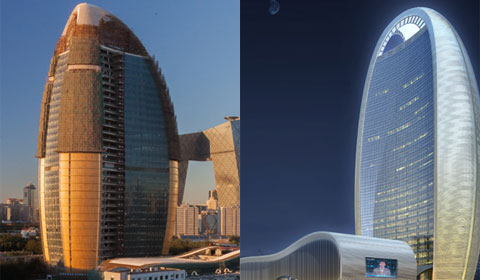
 Architect looks to the big picture
Architect looks to the big picture
 Teachers, students divided over Gaokao reform plan
Teachers, students divided over Gaokao reform plan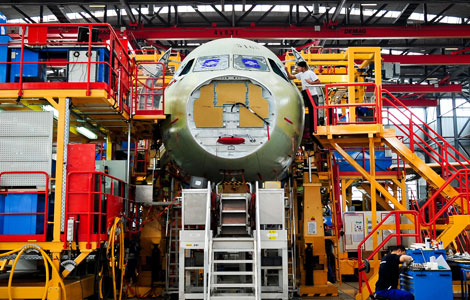
 Dogfight looms over jets
Dogfight looms over jets
 Peak season for fall foliage in Beijing
Peak season for fall foliage in Beijing
 Train carrying carrying oil, gas derails in Canada
Train carrying carrying oil, gas derails in Canada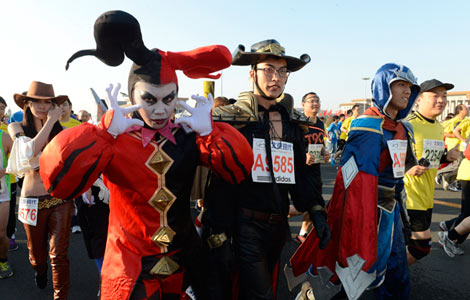
 30,000 turn out in Beijing Marathon
30,000 turn out in Beijing Marathon
Most Viewed
Editor's Picks

|

|

|

|

|
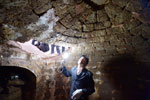
|
Today's Top News
Hollywood must think bigger about China
Obama vows to get website fixed
US OKs Alibaba structure
Economy to see 'good ending' in Q4
Teacher killed in Nevada shooting
UK official looks to China
Beijing needs to be 'more active' in global security
Border agreement to boost ties
US Weekly

|

|

